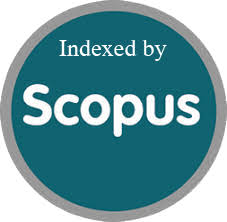Empowering Rural Healthcare: MobileNet-Driven Deep Learning for Early Diabetic Retinopathy Detection in Nepal
Abstract
Diabetic retinopathy (DR) is a pervasive public health challenge, particularly in underserved rural regions like Nepal. Timely detection and management of DR are imperative to prevent vision impairment and blindness among individuals with diabetes. However, the scarcity of advanced medical facilities and trained ophthalmologists in remote areas hampers early diagnosis. This study addresses this critical issue by harnessing deep learning technology, specifically MobileNet, to develop an accessible and cost-effective solution for the early detection of diabetic retinopathy in Nepal's rural communities. The research aims to design and implement a robust DR detection system capable of operating on resource-constrained mobile devices. MobileNet, renowned for its efficiency and suitability for mobile applications, serves as the cornerstone of the solution. Through fine-tuning MobileNet on a comprehensive dataset comprising diverse DR manifestations, the model learns to accurately classify the presence of retinopathy. Recognizing the challenge of limited internet connectivity in rural Nepal, the project explores on-device inference techniques. This enables the model to run directly on mobile devices, minimizing the dependence on continuous internet access and making the diagnostic tool available even in remote regions. The anticipated impact of this project is twofold: firstly, it empowers healthcare workers in rural Nepal to provide early and precise DR screenings, facilitating timely intervention and reducing avoidable blindness. Secondly, it demonstrates the feasibility of deploying deep learning and mobile technology to address healthcare challenges in resource-limited settings beyond diabetic retinopathy.By harnessing MobileNet-based deep learning, this solution has the potential to significantly enhance healthcare accessibility and contribute to the overall well-being of the diabetic population in underserved areas.
Downloads
Copyright (c) 2023 Saurav Bhatta

This work is licensed under a Creative Commons Attribution-ShareAlike 4.0 International License.
Authors who publish with this journal agree to the following terms:
- Authors retain copyright and grant the journal right of first publication with the work simultaneously licensed under a Creative Commons Attribution-ShareAlikel 4.0 International (CC BY-SA 4.0) that allows others to share the work with an acknowledgement of the work's authorship and initial publication in this journal.
- Authors are able to enter into separate, additional contractual arrangements for the non-exclusive distribution of the journal's published version of the work (e.g., post it to an institutional repository or publish it in a book), with an acknowledgement of its initial publication in this journal.
- Authors are permitted and encouraged to post their work online (e.g., in institutional repositories or on their website) prior to and during the submission process, as it can lead to productive exchanges, as well as earlier and greater citation of published work (See The Effect of Open Access).





.png)
.png)
.png)
.png)
.png)
